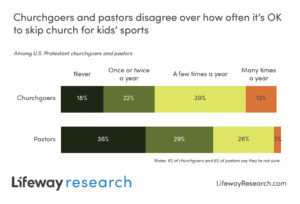
KANSAS CITY, Mo. (BP)–When David and Danette Seffens heard about the shootings of humanitarian aid workers in Iraq March 15, they began praying not just for the victims as workers in a faraway land but also as friends.
The Seffens –- now stateside awaiting the birth of their first child -– are International Mission Board workers who have worked in Iraq.
David said workers in violent atmospheres are fully aware of the daily dangers, but it is never easy to hear about co-workers paying the ultimate price with their lives. Dead are Larry T. Elliot, 60, and Jean Dover Elliott, 58, of Cary, N.C., Karen Watson, 38, of Bakersfield, Calif., and David E. McDonnall, 29, of Rowlett, Texas. McDonnall’s wife, Carrie, 26, remains in critical condition in Germany.
The danger in such work, David said, “takes a special understanding from God, in that you must confront the unthinkable and be aware of the potential cost of service.”
“One must ultimately have a servant’s heart, desiring to serve people no matter what the cost for service.”
David and Danette, graduates of Midwestern Baptist Theological Seminary in Kansas City, Mo., shared in that calling last summer in Iraqi relief work amid all the uncertainties after the U.S. war operations ended.
“After waiting several weeks for fighting in Basra and Al Amara to cease, we were able to establish ourselves within the NGO [non-governmental organization] community,” David recounted. “At first we never realized how much of an impact we would have with the people we worked with on a daily basis.”
They said God used them to bring safety and comfort to many of the people they encountered following the devastating impact of the war.
“The people in Iraq have been lied to for such a long time, so this abuse absolutely broke our hearts — to see the need for love and truth to be shared in their lives,” Danette said. “It only took a little friendship and love to open a great deal of doors in Iraq.”
Just like the selfless workers who were killed, David and Danette likewise accepted the risks in order to help people find peace and freedom. The Seffenses earlier had reflected on this fact after the terrorist attacks on Sept. 11, 2001 — which happened while they were in the Middle East.
“Following the attacks, we were immediately instructed to remain in our home until the celebrations and riots in the area had stabilized, which lingered on for the next three days,” David said. “We had established close personal relationships with several locals whom God used to aid us in our food and supplies from the local marketplace.”
David and Danette found themselves living daily in a volatile situation. “We decided, in faith, to return to our daily activities — despite the strong U.S. government warnings and the local anti-Americanism which directly threatened our safety,” David said.
Many neighbors and friends remained sympathetic to the events that transpired in the United States, they said, but many continued to vocalize taunting claims. While the couple continued to minister to various needs in the region, many locals told the Seffenses that the terrorist attacks were part of God’s retribution for the United States’ political interests.
David said neither persecution nor the fear of death is any reason to stop helping with humanitarian efforts for the people of Iraq. Violence such as the attack on the four Baptist workers only makes feelings grow deeper for the people they were seeking to help, Danette said. The Seffenses said it is important that Christians not focus on the violent acts but remain prayerful for the opportunity of future workers to use such tragedy to share the Gospel message.
“These violent acts draw us closer to God and the smaller things of life that become vivid through such persecution,” David said. “The death of our friends and co-workers only forces us to pray fervently for the efforts in Iraq and the reason for other individuals working there.”
The Seffenses are anticipating the delivery of their first child and have not made any formal plans to return to the Middle East. During this time they will be working and helping mentor other individuals preparing to serve abroad.
–30–














